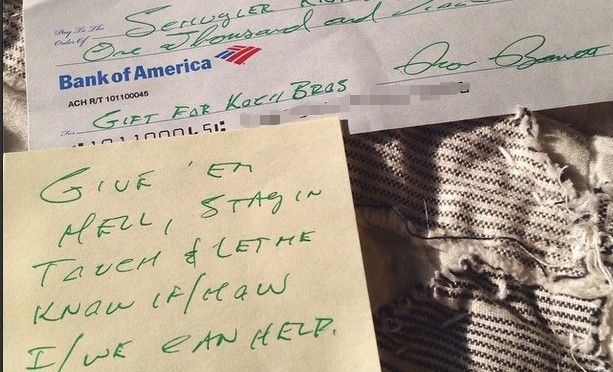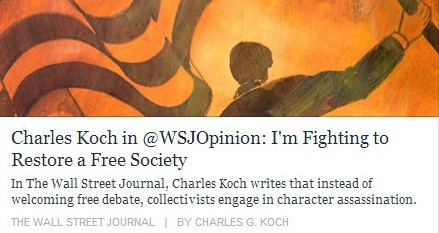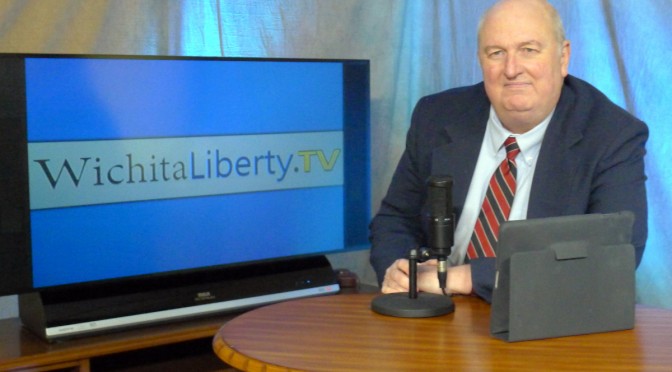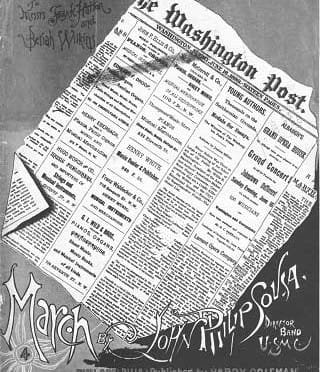Tag: Koch Industries
-

A look at a David Dennis campaign finance report
It’s interesting to look at campaign finance reports. Following, a few highlights on a report from David Dennis, a candidate for Sedgwick County Commission.
-

Small and weak government?
Do corporations prefer the marketplace or a large and powerful government?
-

Criminal justice reform: Why it matters
Mark Holden, Senior Vice President and General Counsel at Koch Industries, Inc., speaks about criminal justice reform initiatives Koch is encouraging in and why they’re important from moral, constitutional and fiscal perspectives.
-

Government creates obstacles to progress
“Overcoming obstacles can be a difficult challenge even on a level playing field. We need to change the rigged system that favors the politically connected over the hardworking, honest citizen,” writes Charles Koch in a recent edition of Perspectives.
-

KU records request seen as political attack
A request for correspondence belonging to a Kansas University faculty member is a blatant attempt to squelch academic freedom and free speech.
-

For Tiahrt, economic freedom is not a good thing, it seems
Kansas congressional candidate Todd Tiahrt has criticized Charles Koch and Americans for Prosperity, leading us to wonder if Tiahrt understands or embraces the principles of economic freedom and free markets.
-

WichitaLiberty.TV: Kansas school finance and reform, Charles Koch on why he fights for liberty
The Kansas legislature passed a school finance bill that contains reform measures that the education establishment doesn’t want. In response, our state’s newspapers uniformly support the system rather than Kansas schoolchildren. Then, in the Wall Street Journal Charles Koch explains why liberty is important, and why he’s fighting for that.
-

Cronyism is welfare for rich and powerful, writes Charles G. Koch
The central belief and fatal conceit of the current administration is that you are incapable of running your own life, but those in power are capable of running it for you. This is the essence of big government and collectivism, writes Charles G. Koch.
-

Washington Post out on a limb, again
The Washington Post has published an article that is demonstrably false, and for political reasons.
-
Why would the Washington Post do this?
Why would the Washington Post embarrass itself by republishing a thoroughly discredited attempt to link the Koch brothers to the Keystone Pipeline, wonders John Hinderaker of Powerline.
-
Lashing out at Charles and David Koch, falsely
The attack campaign on Charles and David Koch is a clear sign that Democrats are very worried about November, and they’re lashing out at anyone who’s bankrolling the opposition.